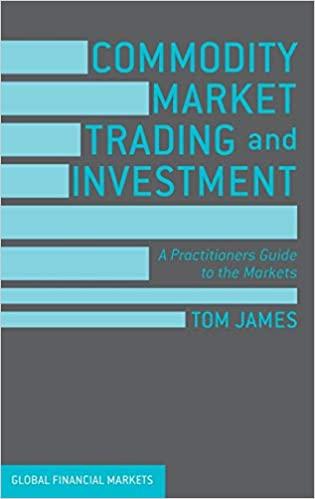Question
Bob (age 33) and Cindy (age 32) have been married for 12 years and are getting divorced. They have two children, Nicole (age 9) and
Bob (age 33) and Cindy (age 32) have been married for 12 years and are getting divorced. They have two children, Nicole (age 9) and Chad (age 5).
Bob started his own business three years ago and he thinks the tax-adjusted value is $201,000. He argues that the business is new and its value cannot be counted on, so it should not be divided. Bobs annual salary is $87,000. His expenses are $2,050 per month. This does not include any credit card or support payments.
Cindy is going back to school to become a nurse. She will finish her degree in three years, and then she will earn approximately $35,000 per year. She will earn no income while in school. Cindys expenses are $4,828 per month. This includes her tuition expenses, which average $350 per month. Bob is offering to help Cindy through school by paying spousal support of $2,000 per month for one year, then $1,500 per month for two additional years. The support will be indexed annually.
The children will live with Cindy. According to the Federal Child Support Guidelines, Bobs payments will be $1,245 per month to support the two children until they finish school or reach the age of majority. This number will drop to $774 per month (adjusted for the 3% growth rate) after the oldest child leaves home or school. They live in a province where the age of majority is 19 years.
The family residence is valued at $220,000 with a mortgage of $130,000 at 7.5% inter est for 15 years. Cindy would like to remain in the home with the children.
They also have a rental house worth $160,000 with a mortgage of $100,000. They receive $1,200 per month in rental income, and the monthly expenses are approximately $1,200 per month.
Cindys has two RRSPs with a tax-adjusted value of $17,000. She also inherited a family art collection about a year ago. The collection is valued at $43,000. Bob and Cindy have a joint Visa credit card that they both use with a balance of approximately $22,600. Without Bobs knowledge, Cindy also opened another joint American Expr ess credit card with a balance of approximately $5,000.
Bob has made the following proposal: Cindy will take the house, the rental, the RRSPs, her art collection, and the debt. Bob will keep only his business. Bob feels that since his business is so new and cannot be counted on, he is making a very generous proposal.
Assume they will each retire at age 65the age at which they will qualify for full OAS benefits and that Bob will be splitting his CPP with Cindy.
13. AshleyandAlanseparatedamicablyattheendof2017agreedthattheirtwochildrenage5 and 6 would live with Alan because Ashley travels a lot for business. Alan had stayed home for a few years and went back to work part-time when they separated. As a result, Ashley agreed to pay Alan $1,500 a month in spousal support and $1,800 a month in child support. However, they drew up their own separation agreement and stipulated only that Ashley would pay Alan a total of $3,300 a month in support. Ashleys salary in 2018 is $125,000 and Alans is $25,000. How much do the annual payments cost Ashley after-tax? How much does Alan receive after-tax? (2 marks)
14. Paulandhiswifehadbeenmarriedfor15yearsandhadbeenseparatedfor3dayswhen he suddenly died. He left an estate worth $600,00 after taxes. In his will, he left $300,000 to his wife Linda and the rest to be divided per capita between his three children. The family lives in Alberta and Paul had not had time to change his will before he died. How much does each child inherit? (2 marks)
15. Maureendiedintestateleavinganestateaftertaxesandprobateof$700,000.Sheis survived by her husband, Jack and her two children Adam and Kelly. She is predeceased by her son Mark. All three of her children had three children each. How much does each family member get if they live in Alberta and the estate is distributed per stirpes? (4 marks)
5
NAME ______________________________________
16. Richardisamajorshareholderinaprivatecorporation,holding$10,000sharescurrently worth $98 each. His adjusted cost base is $42 each. He expects the shares will continue to increase in value and he is considering an estate freeze to minimize his tax liability when he dies. If no rollover provisions apply, what is his taxable capital gain? (2 marks)
Step by Step Solution
There are 3 Steps involved in it
Step: 1

Get Instant Access to Expert-Tailored Solutions
See step-by-step solutions with expert insights and AI powered tools for academic success
Step: 2

Step: 3

Ace Your Homework with AI
Get the answers you need in no time with our AI-driven, step-by-step assistance
Get Started


